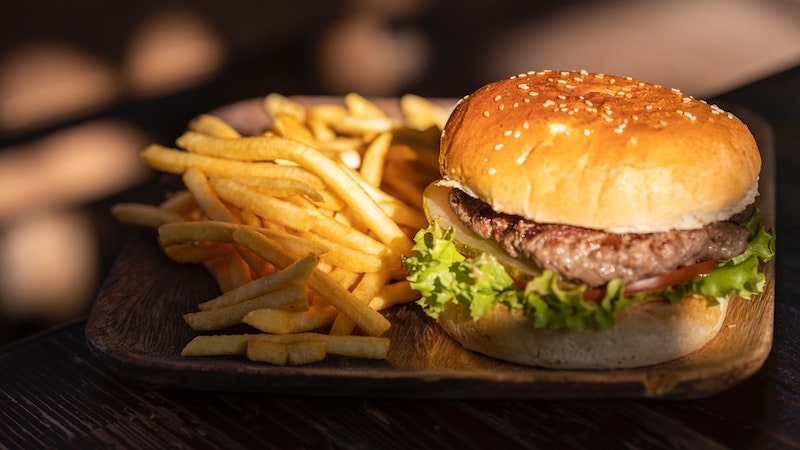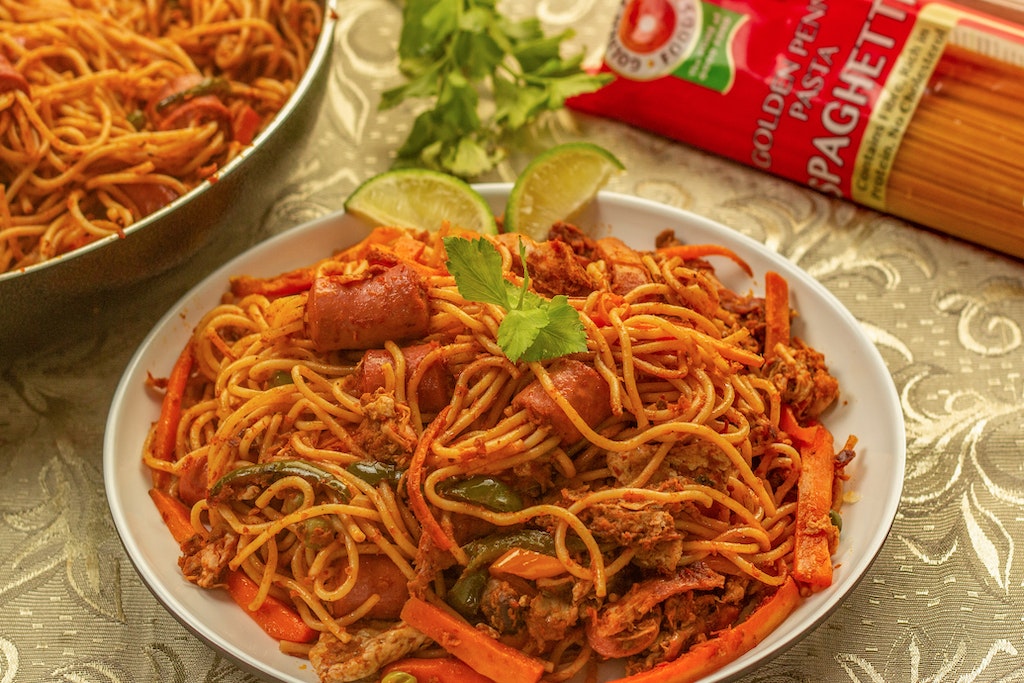Carbohydrates play a crucial role in maintaining good health and well-being. They are the primary energy source for the body and are essential for the proper functioning of the brain and nervous system.
They are also important for physical activity and help replenish glycogen stores in muscles after exercise. Carbohydrates help regulate blood sugar levels, which can benefit those with diabetes.
It’s important to choose carbohydrates wisely and opt for complex, unrefined sources such as whole grains, fruits, and vegetables over simple, refined carbohydrates like sugar and white bread. You can support a healthy, active lifestyle by incorporating a balanced mix of carbohydrates into your diet.

Read: Concept and Importance of Balanced Diet for Healthy Life
Carbohydrates Types & Classification
Carbohydrates are the most accessible source of energy for the body, providing 50-55% of total energy intake. Although quantitative carbohydrates represent only 0.3% of body weight, their importance is extremely high, with a dual role: energy and structure.
Carbohydrates are used to maintain body temperature and vital functions and provide energy for muscular efforts. Our nervous system, the brain and other organs such as the heart, lungs, kidneys, intestines and blood cells are especially needed carbohydrates and can not be nonfunctional without them.
In addition to the fuel for the cells, carbohydrates form cell membranes, connective and supporting tissue, nerve tissue, and some basic functional component parts, such as hormones, enzymes and antibodies.
3 Types of Carbohydrates

Read: Top 10 Energy Foods That Give Energy for Work Environment
#1. Simple Sugars
In this category are distinguished monosaccharides (a molecule made up of elementary) and disaccharides (two associated molecules). These sugars are called “quick” because they are absorbed immediately into the blood.
All, except fructose, have the inconvenience of adjusting mechanisms jolted to stimulate blood glucose (insulin secretion) and not quell hunger for long periods.
The absorption of fructose is as rapid as simple carbohydrates, but only half the fructose is used immediately, and the other half is stored as glycogen. For this reason, ingestion has not triggered the secretion of insulin.
Read: 5 Health Benefits of Matcha, Green Tea Powder
#2. Monosaccharides:
- Glucose is found in the free state in less food and contains numerous other carbohydrates. Glucose is the main fuel of the human body and the core element of glycogen.
- Fructose and honey are present in the fruit, with the glucose part of sucrose in the formation.
- Galactose is the composition of lactose (milk sugar) in association with glucose.
#3. Disaccharides:
- Sucrose, or sugar Typically, the most common in nature, is composed of one molecule of fructose and one of glucose. It can be obtained from sugar beets and cane. It is found in fruits and vegetables.
- Lactose is the sugar in milk and milk products.
- The grains are maltose and beer.
- Complex carbohydrates: are called polysaccharides or “slow carbohydrates” as they progressively absorb the intestine.
They should decompose the basic carbohydrate molecules (glucose, fructose and galactose) in the first stage before they can be absorbed. Insulin production is better adjusted after consuming carbohydrates slowly since the release of small glucose molecules in the blood progresses over time.
Read: 10 Best Diet Plan for Weight Loss Instantly
Complex carbohydrates provide energy besides (glucose) and other nutrients. Polysaccharides are carbohydrates consisting of several monosaccharide molecules associated. The main digestible polysaccharides are:
- Starch: present in foods of plant origin, such as cereals, legumes, potatoes and some fruit (bananas, chestnuts).
- Glycogen carbohydrates in animals constitute some of the stored energy stored in the liver and muscles. It consists of a chain of several molecules of glucose. Dietary intake of glycogen is almost zero, but the body can produce and use it during interradial.
Where Ourselves in Carbohydrates?
Food sources of carbohydrates are varied, and carbohydrates are found in different proportions in sweet foods. Simple sugars (mono and disaccharides) are absorbed as such and are then available as a source of energy in the body, and the complex (oligo-and polysaccharides) are first converted into simple sugars and then absorbed.
This underpins the glycemic index of foods (see below). Fruit, honey, and syrups contain large amounts of simple sugars, while complex carbohydrates are particularly in cereals and vegetables.
It was previously thought that a certain amount of carbohydrates increase blood sugar and has the same effect regardless of the source of the original food.
Read: 10 Super Foods That Help You Gain Muscles While Losing Weight
This view was refuted by actual studies that show, for example, that 30g of carbohydrates from bread and not have the same effect on blood sugar as 30 g of carbohydrates from fruit or pasta.
Carbohydrates from white bread are refined carbohydrates obtained by processing, therefore simple structure; they will raise blood sugar faster than carbohydrates in pasta or bread interim or black, containing complex carbohydrates.
The sudden rise in blood sugar is followed by a response from the body that tends to bring blood glucose levels to normal values by increasing insulin secretion. When this is done quickly and secretion









